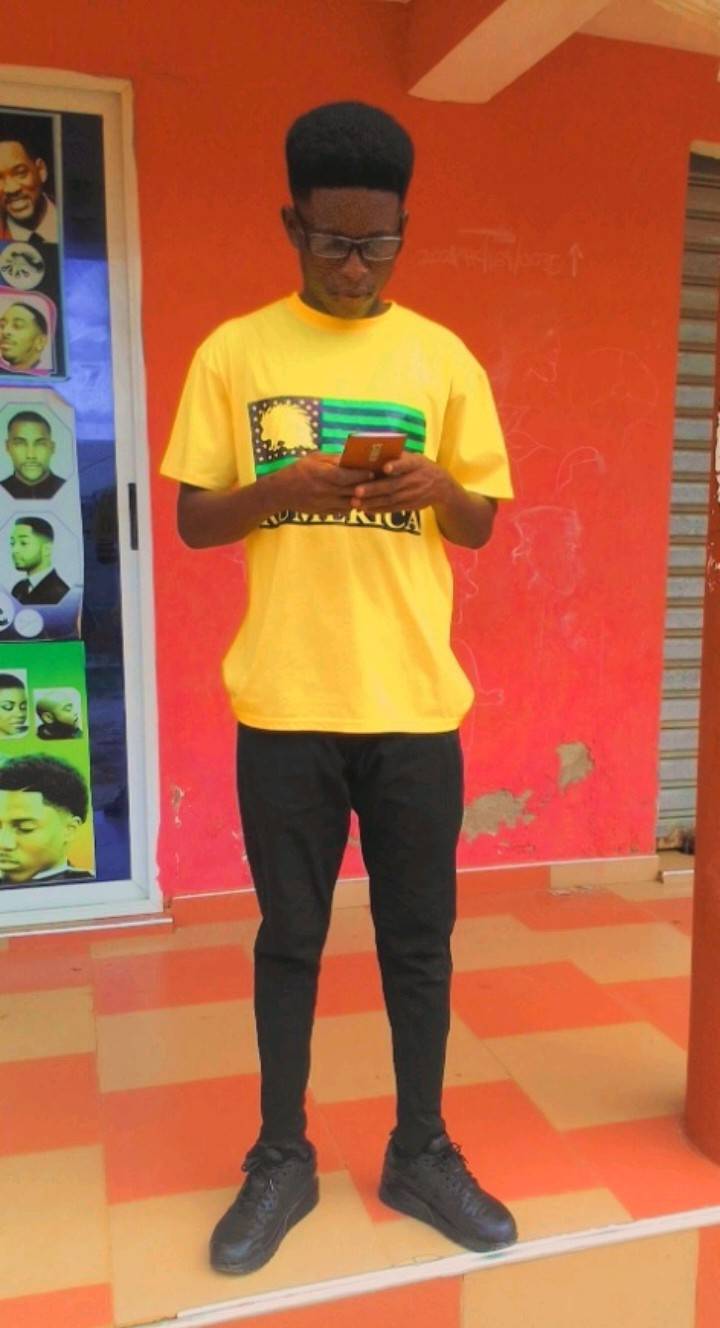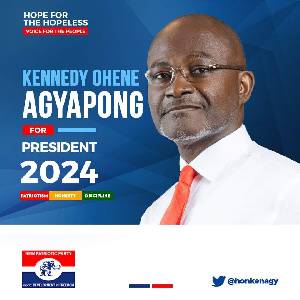In recent times, the image of Ghana, once hailed as a beacon of democracy and stability in West Africa, has faced severe challenges that have caused a decline in global perception. This alarming situation has prompted prominent figures like Agyapong and Akoto to aspire to the highest office in the land, seeking to restore the nation's tarnished reputation. As an analyst, I delve into the factors contributing to Ghana's image crisis and the motivations behind these politicians' presidential ambitions.
Ghana, for decades, has been celebrated for its commitment to democracy, economic growth, and good governance. However, in the past few years, the nation has grappled with several issues that have caused its reputation to plummet. Corruption scandals, political instability, and socio-economic inequalities have been among the chief culprits contributing to this negative perception.
Both politicians have established themselves as champions of the people, capitalising on growing public discontent and disillusionment with the current state of affairs. They portray themselves as anti-establishment figures who can restore the nation's dignity and put an end to the deep-seated issues that have hampered Ghana's progress.
Kenneth Agyapong, a prominent businessman and Member of Parliament, has garnered a considerable following by voicing his strong opinions on corruption and governance challenges. While some perceive him as a maverick, others believe he represents the desperation of the masses yearning for genuine leadership. His unfiltered approach and candid remarks have earned him both admirers and critics, making him a formidable contender in the upcoming presidential race.
On the other hand, Nana Akoto, a seasoned diplomat and former minister, brings a different approach to the political landscape. Known for his diplomatic finesse and commitment to national development, Akoto is positioning himself as a unifying figure capable of healing the wounds of a divided nation. His experience in international relations has also resonated with those who believe Ghana's redemption lies in strengthening its global standing and attracting foreign investments.
Despite their differing approaches, both Agyapong and Akoto share a common goal: to salvage Ghana's image and revive its international standing. They promise to tackle corruption head-on, prioritise socio-economic development, and restore faith in the country's democratic institutions. Their campaigns have sparked fervent debates across the nation, with citizens eager to see a tangible solution to the myriad of issues plaguing their beloved country.
The incumbent government, led by President Amanfo, has been on the defensive as it faces growing criticism over its handling of various national challenges. While they point to some achievements, such as infrastructural development and economic growth, critics argue that the administration has fallen short in addressing fundamental issues like corruption and social inequality.
Public opinion polls indicate a significant shift in the electorate's sentiment, with a substantial portion expressing a desire for change. This sentiment has created an opportune moment for both Agyapong and Akoto, who have capitalised on the disillusionment with the status quo and are gaining momentum in their presidential bids.
It is crucial to recognise that Ghana's image crisis is not solely a result of its internal challenges. The nation has also faced external scrutiny, particularly concerning environmental issues, human rights concerns, and perceived electoral irregularities. These external factors have further exacerbated the erosion of the nation's international reputation, making the task of rebuilding public trust an arduous one.
As Ghana gears up for the upcoming elections, the stakes have never been higher. The nation's future trajectory hinges on the decisions made by its citizens at the ballot box. The candidates vying for the presidency must offer concrete and viable solutions to the deep-rooted problems that have plagued the country for years.
While Agyapong and Akoto have emerged as potential candidates, it remains uncertain whether either of them can deliver on their promises and restore Ghana's image to its former glory. The road to redemption will require more than just ambitious campaign pledges; it will necessitate sincere efforts to address corruption, prioritise social welfare, and foster a united nation that stands tall on the global stage.
In conclusion, Ghana's image crisis has given rise to a new wave of political aspirations, with figures like Agyapong and Akoto seeking to become the beacon of hope the nation needs. Their emergence reflects the collective desire for redemption and a brighter future. As an analyst, I believe that Ghana's journey to restoration will require more than just political posturing; it will demand genuine commitment and transformative leadership to steer the country towards a better tomorrow.
As the presidential race intensifies, Agyapong and Akoto find themselves grappling not only with each other but also with a myriad of complex challenges facing Ghana. One of the key issues that the aspiring leaders must address is corruption, which has deeply entrenched itself within various levels of society and government. To win the people's trust, they must present comprehensive plans to root out corruption, promote transparency, and hold accountable those who abuse their positions of power.
Moreover, Ghana's image crisis cannot be resolved solely through domestic efforts. Building strong diplomatic relations and engaging in international partnerships will be essential for restoring the country's standing on the global stage. Agyapong, with his outspoken demeanour, might need to adopt a more tactful approach to international relations, while Akoto may need to demonstrate how his diplomatic expertise can be used to foster mutually beneficial ties with other nations.
Another pressing issue is economic development. Ghana has made strides in recent years, but the benefits of growth have not reached all segments of society. Addressing economic disparities and ensuring inclusive growth will be paramount to regaining public confidence. Both candidates need to articulate practical economic policies that promote job creation, support small businesses, and invest in education and healthcare to uplift the less privileged.
Furthermore, the topic of environmental sustainability cannot be ignored. Ghana, like many countries, faces ecological challenges such as deforestation, improper waste disposal, and pollution. A comprehensive approach to sustainable development, taking environmental preservation and green technologies into account, will demonstrate a commitment to safeguarding the nation's natural resources for future generations.
Agyapong and Akoto must also address social issues such as healthcare accessibility, education, and gender equality. Fostering an inclusive society where every citizen has equal opportunities to prosper is essential for the nation's growth and prosperity.
Moreover, the presidential candidates must confront the issue of political division within the country. Polarisation and tribalism have hindered progress and created an environment of animosity. Promoting unity and fostering a sense of national identity will be crucial in building a stronger and more resilient Ghana.
As the election draws near, it is imperative that Ghanaians engage in informed and constructive debates about the future of their country.
Beyond political campaigns, citizens should demand transparency, accountability, and integrity from their leaders. To combat misinformation and propaganda, media organisations play a vital role in providing accurate and unbiased information to the public.
The international community should also closely monitor the elections in Ghana. As the nation strives to overcome its image crisis, global support and cooperation can play a significant role in fostering positive change. International observers can ensure that the electoral process is fair, transparent, and free from any form of manipulation.
In conclusion, Ghana's image crisis has prompted the emergence of political figures like Agyapong and Akoto, who are vying for the presidency with the hope of restoring the nation's reputation and solving its pressing issues. However, the path to redemption will not be easy, and the challenges facing Ghana are complex and multifaceted. The candidates must present realistic, well-thought-out plans to tackle corruption, promote economic development, and address social and environmental concerns.
Ghanaians must actively participate in the political process, engaging in informed discussions and making their voices heard at the polls. The success of the next leadership will depend on the nation's collective determination to foster unity, uphold democratic values, and work together towards a brighter future. With sincere and transformative leadership, Ghana can rise above its current challenges and reclaim its position as a shining example of progress and stability in West Africa.




No comments yet
Be the first to share your thoughts!